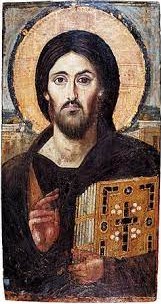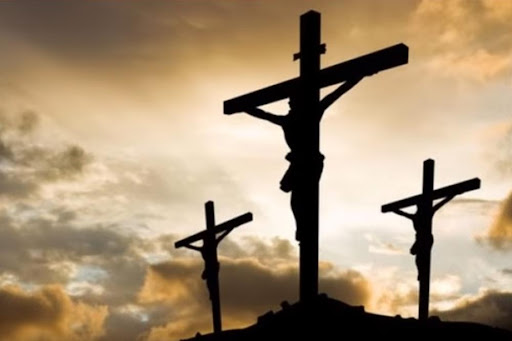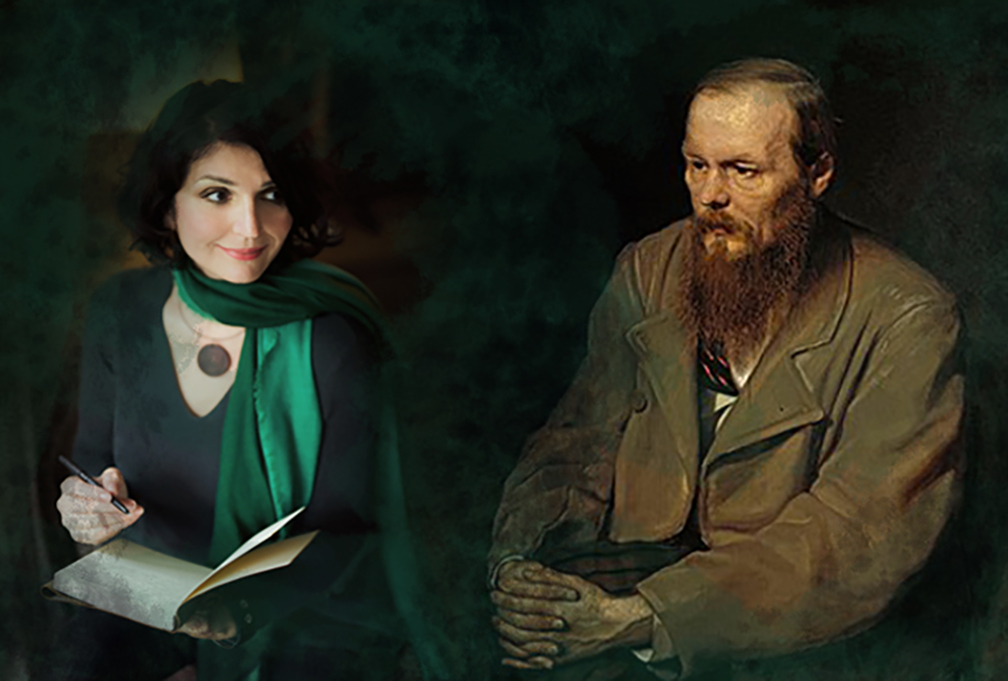Dostoevsky – the man who knew us all too well
This year marks the 200th anniversary of the birth and 140th anniversary of the death of Fyodor Mikhailovich Dostoevsky, one of the greatest and most widely read writers of all time.
Could anything new, clever, or original be said about Dostoevsky that hasn’t already been said or written: teacher and student, supplicant and rebel, doctor and patient, spiritualist and confessor, great friend of God, someone who knew us all too well …
Therefore, I will not talk about him from a literary, linguistic, or philosophical point of view, but only through my personal bond with his work and the influence it had – and repeatedly have had – on my personal life.
By expressing himself and others through the characters in his novels, Dostoevsky spoke of all of us.
When one starts tackling eternal questions and searching for everything that is immortal and eternal in him, it means that one takes everything off and from around oneself and shelves it, and stands bare before the only Eternal One!
At one point in his life, after realizing how mysterious man is, and how unwieldly, jagged, colorful, and layered this world is, Dostoevsky decides to genuinely – metaphysically extremely risky, without any side-taking – let the characters in his novels express themselves freely and effectively, in all their accuracy or fallacy, falsity, failure, disarray, madness …
Dostoevsky first imitated, and then carried his characters – and carried each of us through them. He walked with them side by side. He breathed the same air so as to reach all the depths of man in all his dimensions, no matter how frightening that path was. He crossed the lines and edges where one always finds oneself (beyond morality), to the abyss of evil in the depths of man (Notes from Underground), knowing that reasoning is not always the strongest, mind is not always the most important, and man does not come closer to God through morality.
Entering the trinity, he deeply grieved for every one of his characters – quietly, like our Lord Jesus Christ. He tried to understand, embrace, and forgive each of his antiheroes. He let everybody’s voice be heard, even the devil himself!
I believe that, in addition to the key surprise that the devil experienced when God incarnated, the next one was exactly when Dostoevsky told him through his work: “Here, the floor is yours. Speak up your mind…”
With what he found and took from his experience with the forces of good and evil, Dostoevsky could have become either a saint, or could have been deified (homo homini deus), or demonized (homo homini lupus). But he knew well what was good and what was evil! He knew: not what, but Who the Truth is, and that there is no resurrection without suffering and the cross. He knew that there is indeterminate space between eternity and time (Søren Kierkegaard) that every man will inevitably encounter in life. However, there is also the leap! The leap into oneself, forward, and up!
When I found myself on the other side of good and evil at one point in my life, like most of us eventually do, Dostoevsky’s novels were, miraculously, right there. As I read, I would write down on pieces of paper everything I reluctantly identified with. It was as if he came to remind me in those moments, through his characters, that free will was given to man to constantly grow, develop, and become complete; that this could only be done through constant struggle of good and evil, through the struggle with absurdities, fantasies, and madness, first within oneself and then with the outside; that everything is good, no matter how bad it looks, because it does not matter how something was or is, but how it will be! It is left to us to choose and complete our own path: with God or without him.
Improvement and personal development – because one can grow into both God or the devil – is not for our own sake, nor is anything just for us or of us. It does not come – I want to emphasize this, probably because it took me a long time to understand it – through a beautifully paved and impeccably polished morality (because personal and other people’s experience tells us that, despite knowing what is good, we fall again and we do not do good), or through physical torture by strict ascetic rules, but primarily through daily, simple, and loving relationship and conversation with His Son – the Lord Jesus Christ.

Morality does not make one better, faith does!
This was one of the key points I have just learned from Dostoevsky, and the reason I still take the aforementioned pieces of paper out of the drawer quite often…
No embellishments and no villains!
Dostoevsky is one of those writers who loved immensely all his characters as they were, so he did not embellish or colour them. He did not ask them questions, but let them happen and express themselves.
He knew that beauty was not what ancient Greece and the Renaissance proclaimed it to be. He knew that it was not where muscles, strength, third dimension, and pretentiousness of expression are, but where there is unity and everything (in between) that happens between man and God, man and man, man and the Most Holy Mother of God, angels and saints. He knew the reason why Orthodox icons were two-dimensional and not ornamental, but a visual expression of the invisible divine reality.
It is through this realization that Dostoevsky speaks through his characters and reminds us that true beauty (the one that will save the world) is in feeling and experiencing the otherworld through the immediate, two-dimensional, impaired, unfinished, to many even ugly, and not in three-dimensional shape and vision (drawn or painted) of imaginary characters, often highly individualistic …
There is no decorative color in his novels and there are no villains, as would late Bishop Atanasije Jeftić put it, because the first ones to whom the gates of heaven are opened are scoundrels and murderers who repent and worship the One who forgives and prays to God, his Father, even for his tormentors. This should never be forgotten! Authenticity, and not conceited justness, morality, or piety, is the one that breeds transformation and resurrection, no matter how nefarious one may be. That is why Saint Ava Justin Popović called Dostoevsky an apostle of Orthodox realism.

Man is a layered and unfinished being …
Dostoevsky is one of the few writers whose work is read like the Holy Bible, because, with every reading, new answers are given and new questions asked. It reminds us that everything earthly is only temporary and there is no eternity without the Eternal.
He wrote in layers, which is not unusual for writers, but he went further than that. Every layer of his has its own layer, and each is unique. They are all interconnected, and everything is there to reveal what we need to let be revealed to us. All the characters, plots, entanglements, searches, banalities, abominations, absurdities, and insanities that outwit all the self-proclaimed wisdom in the world; the power relations in the experience of man; the power relations in the experience of reality; the possibility for a man to express his experience in relation to the real dimensions of an occurrence… it could only have been articulated by a believer with highly refined nervous structure, depth, and a big heart!
All these layers are within every man, but cannot be identified or understood by everybody. That is why this genius writer of fiery spirit was perceived by some to be eerie, and by others to be spiritual.
With such lavish layering, it is no wonder that many literary critics, in their self-importance and obsession with their own pen, not unlike executioners, rejected him and took him before their personal firing squads to pass judgement on him before the world. Not knowing what they were doing, such critics were not aware of the tools needed to capture a man of such extraordinary depth and unrest, a man who had actually stood in front of the firing squad, faced his own mortality, experienced Siberia with all the Siberias within himself, and lived to be pardoned and transformed, a man who saw Christ!
Such literary critics do not understand that the work of Fyodor Mikhailovich Dostoevsky would not be possible without all those arrow stings and wounds that he carried on himself and within himself.
When a literary work becomes a confession and a sermon, then such a writer is there to be heard and followed unquestionably, and not judged because his work is doomed to only one – eternal remembrance! Additionally, in order fully understand Dostoevsky’s literary work and enter its depths and chambers, it is necessary to be Orthodox Christian.
Revolutions and Prophesy
Long before Freud and Jung, while imprisoned in Siberia, Dostoevsky recognized that the roots of evil in man could not be torn out by external revolutions. He understood the futility of any violent revolution and recognized the weakening of Orthodox morality in Russia, but also in the entire Orthodox world.
How?
By finding himself in the gap between accepting and rejecting God, by realizing that only through faith, and not mind, can one enter the other side. If one goes into anything with his mind, he will be greeted by the mentioned abyss.
With such realization, Dostoevsky was able to say: “Do you know that centuries will pass and mankind will proclaim with the mouth of its wisdom and science that there is no crime, and therefore no sin, but only hungry men? Feed them first, then ask virtue of them.”
Aren’t these words of Dostoevsky’s prophetic and do they not clearly paint the picture of today’s world, especially the Western world, which has been in a crisis for a long time? Is there not still freedom without bread and bread without freedom…?

Speaking of bread…
In The Brothers Karamazov, Dostoevsky very clearly warns about the upcoming confrontation between the Grand Inquisitor and Christ, the false one and the true one.
Thus, according to the Inquisitor’s idea, all mankind will be divided into leaders on one side, and a huge impersonal herd of obedient people, on the other. People will reject all questions and reasonable doubt, and will surrender to leaders who will think and make decisions for them.
Christ and the Inquisitor are two antipodes: the first one – makes people free, the second – wants to subdue them. For Christ, man does not live only on bread. As for the Inquisitor, there is nothing more important than bread. Christ resisted the temptations of the evil-one, and the Inquisitor directly admits that he himself is no longer with Christ, but with the evil one.
It is important for the Inquisitor, therefore, to accept deception and consciously lead people to ruin and death, while cheating them all the time. Everything is well-designed and organized to give people not only bread and entertainment, but also a sufficient “dose” of God and immortality. This is how far the Inquisitor’s lies and deceptions go …
Dostoevsky’s analysis of the West is also reminiscent of contemporary times. In the West, man is offered salary for which one must work so much that one has little time left for family and everything else. Overworked man does not have time to think because he faces only questions like: how to survive, pay utility and credit card bills, pay off loans … Brainwashing by most western media is a long tried and tested technique, making it easy to save little in the people’s minds, especially issues related to the meaning of life, and quite easy to dry up every piece of healthy thought out of man.
It is my belief that, sometimes, we do not need external media for this, because they are the strongest within us, although almost imperceptible. Perhaps, that is why Sigmund Freud claimed that we are responsible for what we do in our dreams!
Christianity is constantly in tension and crisis. Paradoxically, suffering and pain have been given to us to constantly re-examine ourselves, to question whether we are on the right path or whether we have clung to our self-justified evil and snuggled in it even more comfortably.
Dostoevsky taught me that, in addition to the external, the much worse Inquisitor is the inner one, the one that most often goes unnoticed…
Spiritualist
Only the man who is open to absorb and carry the universal pain and suffering, who can distinguish the earthly from the heavenly in man – could break through all the pores of man and meet the Lord there. Everything that comes in contact with the Lord, and everything that is brought there – is transformed. Every wound and pain, as a consequence of human malfunction and failure, becomes a new righteousness.
In all of it, Dostoevsky, a connoisseur, and a prophet, observes the mysterious transitions of human feelings into thoughts, thoughts into passions, passions into new passions … In that battle, he is on the front line, wounded and tormented, but the one who calls on Christ!
And it is to such a man, a collector of human pain of sorts, that God gave everything which had been transformed, in order to bring the healed man back to man. Only such a healed man could tell us that we are all: Stavrogin, Raskolnikov, Myshkin, Nastasiya (Anastasia), Polina, Sonya …
Such a man is the closest to a spiritualist, and such literature becomes confessional, sermonical, and healing.
I can confidently say that Dostoevsky is my spiritual father!

“I love you – therefore you will not die!”
Dostoevsky believed in God and craved to be where Christ was. He experienced heavenly love, so he could say: “When you believe in Christ, then you believe that you will live forever!”
He was able to claim: “To love someone means to tell him: You will not die!”


